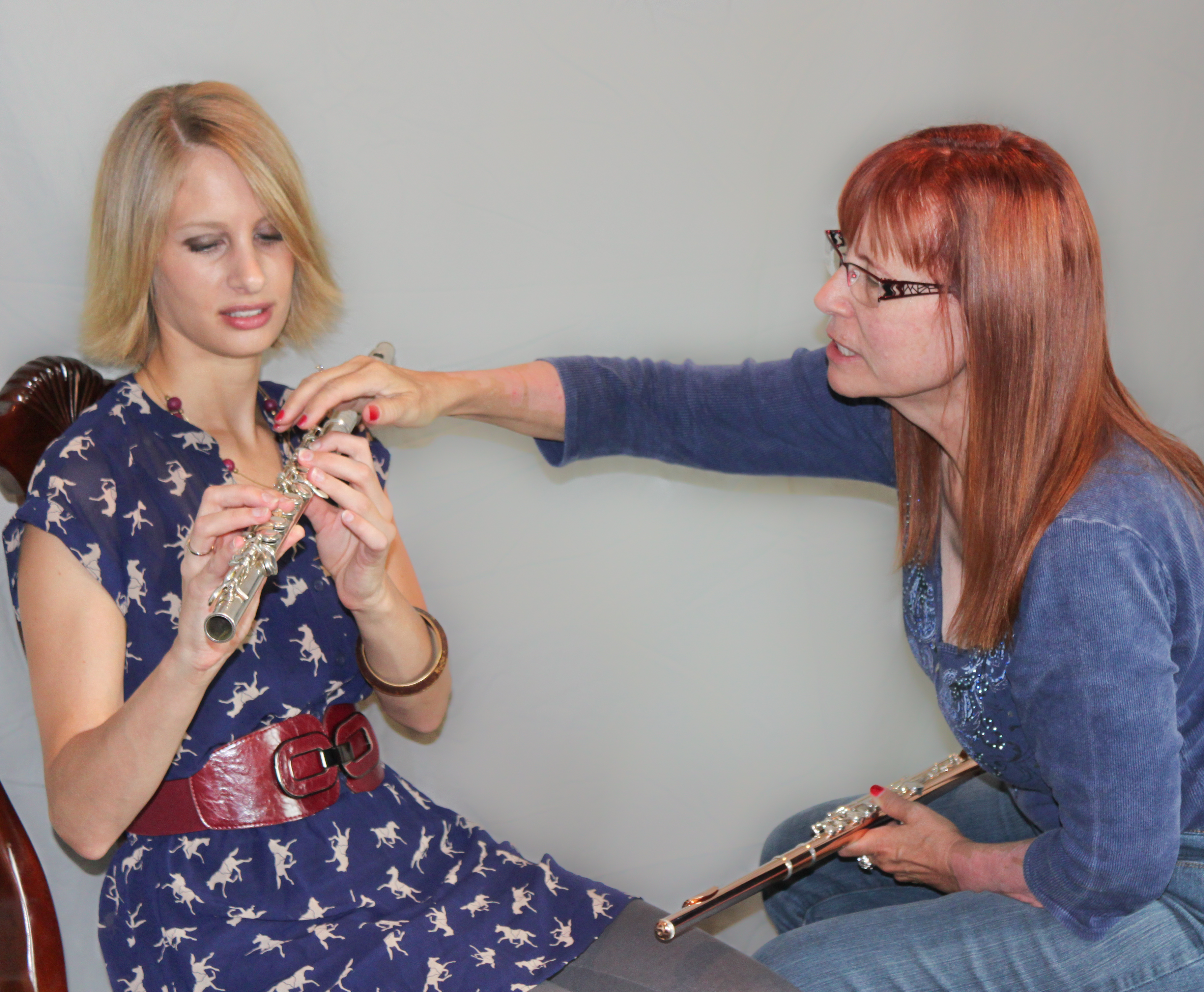Flute Lessons

Linn Kezer Music Studio offers flute lessons in Port St. Lucie FL and Stuart FL to children and adults of all skill levels, beginner through advanced.
Mrs. Kezer studied flute and piccolo at the U.S. Army School of Music and privately with with Rebecca Jeffreys.
She has performed in master classes for Per Øien, Rebecca Jeffreys, Chris Potter, and Alexa Still. She has performed with the Woodbridge Flute Choir at the White House and the Kennedy Center in Washington, DC. She was the founding director of the Rochester (MN) Flute Choir.
Mrs. Kezer performs with the Treasure Coast Flute Choir and the Port St. Lucie Community Band.
Mrs. Kezer is a member the Florida Flute Association, and the National Flute Association.
What You Will Learn
Beginners
For students who have never played the flute, we will begin with just getting a sound out of the head joint. Once a sound is produced, we will work on developing it into a good sound. Only after we have a good sound will we put the flute together and begin to learn to play different notes. Next you will learn to read music, and the fingerings on the flute for the notes as you learn to read them. I generally use the Rubank method books, although other methods can be used if Rubank proves to be less than optimal for an individual student. From day one, I include dynamics, articulation, good posture, fingering technique, embouchure control, tone, intonation, expression in each lesson.
Intermediate
For students who already know how to read music and play all most of the notes in the first two octaves, we will work in the Rubank Intermediate method book (unless another method would better suit the student). We will also start working on solo repertoire at an appropriate skill level for the student. While learning progressively more difficult pieces, we will continue to focus on good posture, fingering technique, embouchure control, tone, intonation, and expression. We will work on embouchure control, allowing for more varied tone colors and intonation control. At this level, the student will begin incorporating music theory into the flute lessons. With the study of music theory comes an understanding of the construct of, and the memorization of scales and arpeggios in major and minor modes in the more frequently used key signatures.
Advanced
For students who know all of the notes in the two lower octaves and at least half of the notes in the top octave, we will work in the Rubank Advanced method books (Vol. I and Vol. II). The Rubank Advanced books cover all Major and Minor key signatures. You will be expected to memorize the scales and arpeggios for each of these key signatures as they are studied. In addition to these scales and arpeggios, more advanced music theory will be included in the course of study. After Rubank we will progress to more advanced exercises and etudes used by most flute teachers throughout the US. We will also continue to explore the solo repertoire, tackling an ever-increasing level of difficulty. We will continue the embouchure and intonation control we studied at the intermediate level to gain a better understanding of and ability to make very fine adjustments in tone quality and pitch of each individual note. Another major area of focus will be expression. You will learn to interpret the music as to the picture or emotion the composer was trying to evoke as well as an ability to portray that picture or emotion to your audience.
Scheduling
Lessons are once/weekl. They can be 30 minutes, 45 minutes, or one hour. I will consider one-time lessons or occasional/non-scheduled lessons on a case-by-case basis.
Tuition
The tuition for lessons is established by the music store where the lesson is held.
Payment
Payment for lessons will be made monthly and is due at the first lesson of the calendar month, payable to the music store where the lesson is held.
Instruments, Music and Accessories
You are responsible for purchasing, and maintaining in good working order, your own instrument, music books, and any necessary accessories (instrument cleaning supplies, music stand, notebooks, metronome, tuner, computer software/hardware, music recordings, etc.). Flutes must be taken to a reputable flute repair technician for a “Clean, Oil, and Adjust” at least every other year, preferably every year.
Prior to purchasing a flute, students should consult with Mrs. Kezer. For some beginning students it may be wise to rent an instrument for the first few months until the student has demonstrated an interest and a willingness to practice and participate in the learning process. I can recommend music stores that will rent quality instruments at an affordable price.
If you choose to purchase a flute, it is important that you do not buy the cheapest flute you can find on ebay. There are several flutes available today at very low prices, but the adage still rings true: you get what you pay for. A good instrument is a necessity for the student's progress. Playing on a flute of poor quality may be physically difficult, may not produce a good sound, may have bad intonation, or may even fall apart quickly. None of these situations is conducive to a student enjoying lessons and maintaining a desire to continue lessons. For these reasons, you will need to have a quality instrument. Good flutes come an a very wide range of prices (a couple of hundred dollars to several thousand). I will work with you to find the best flute possible for your budget.
Like Us On Facebook
For more information on flute lessons in Port St. Lucie FL or Stuart FL, please contact altoflutist@yahoo.com or call 507.993.8303.

